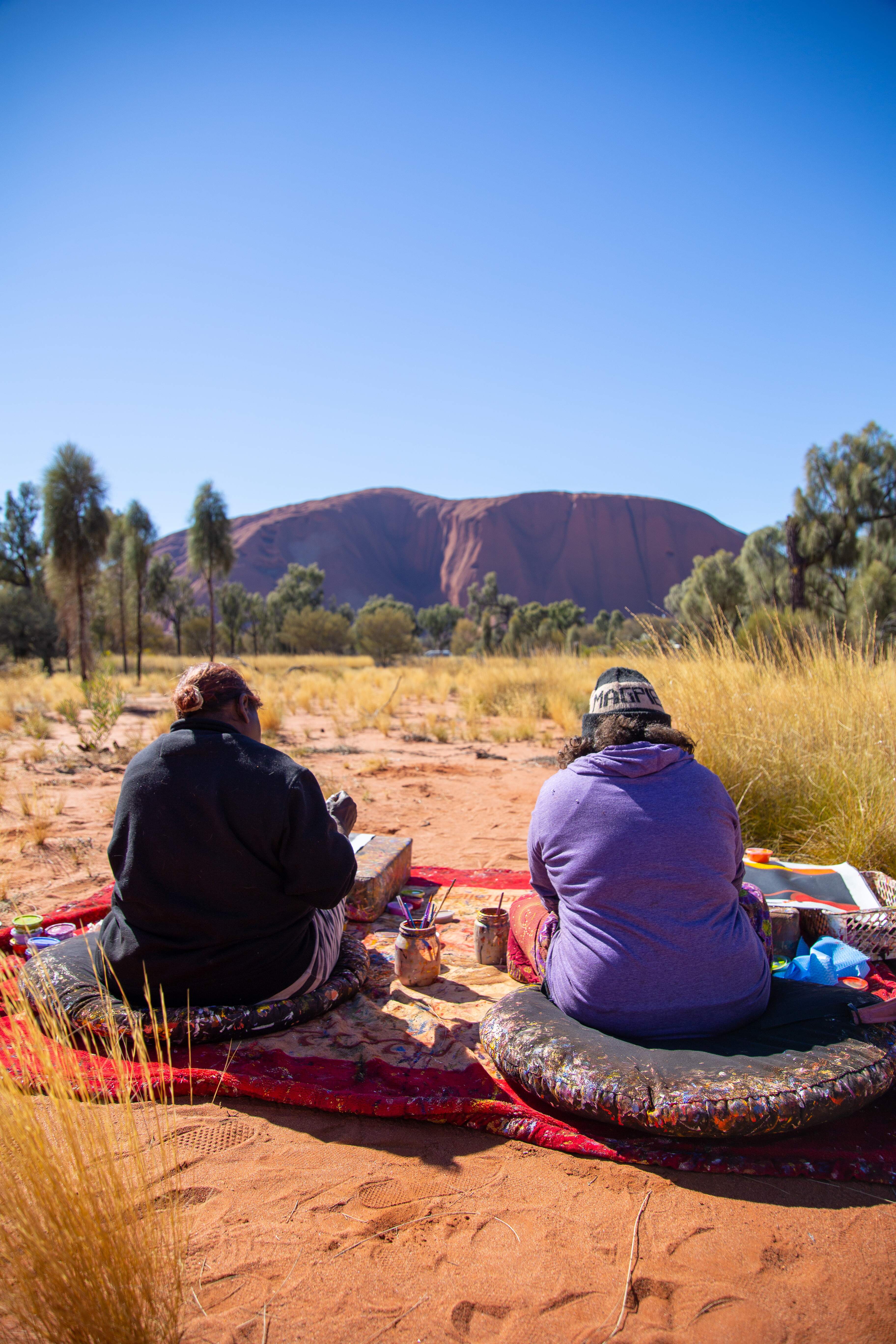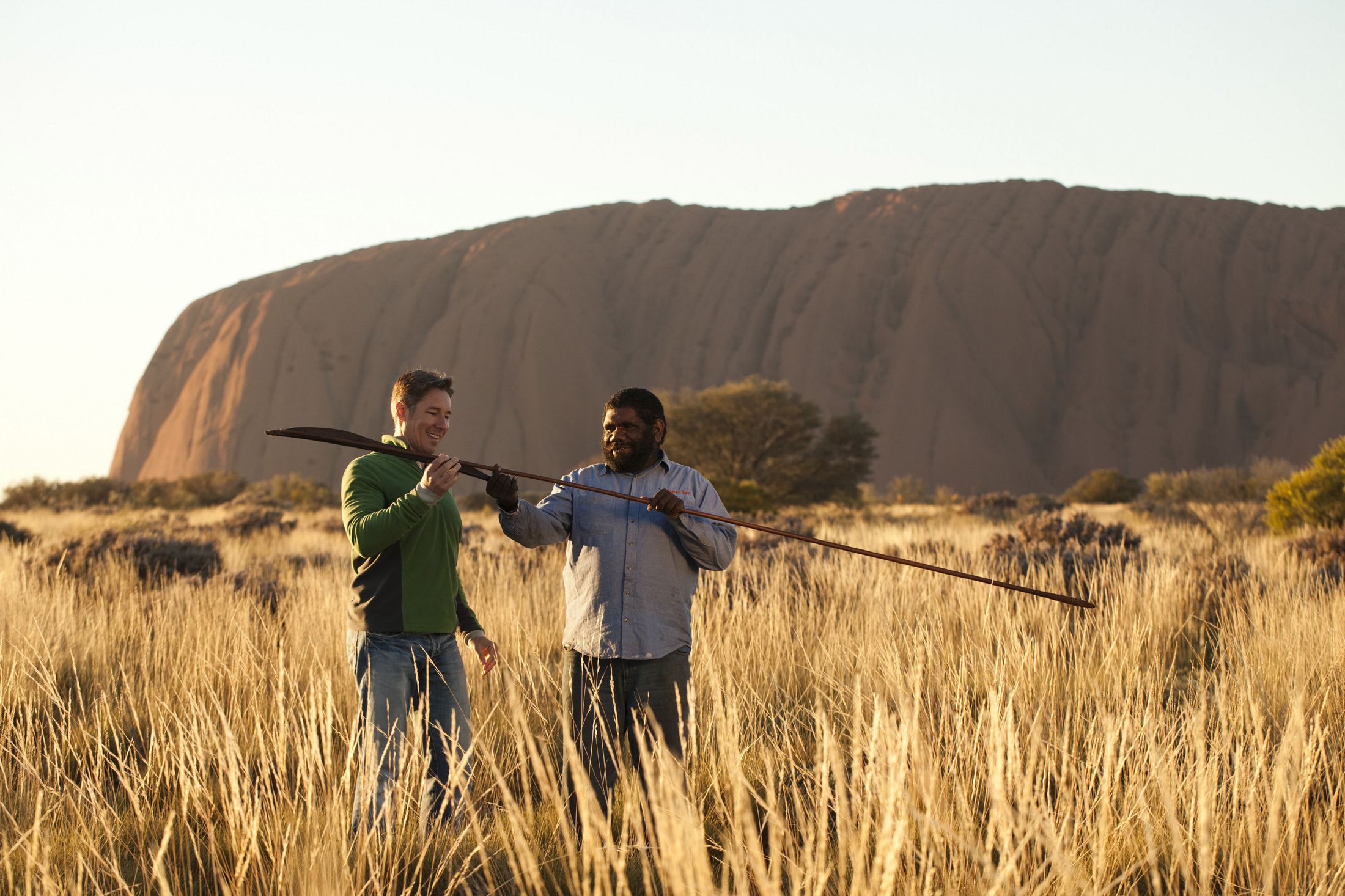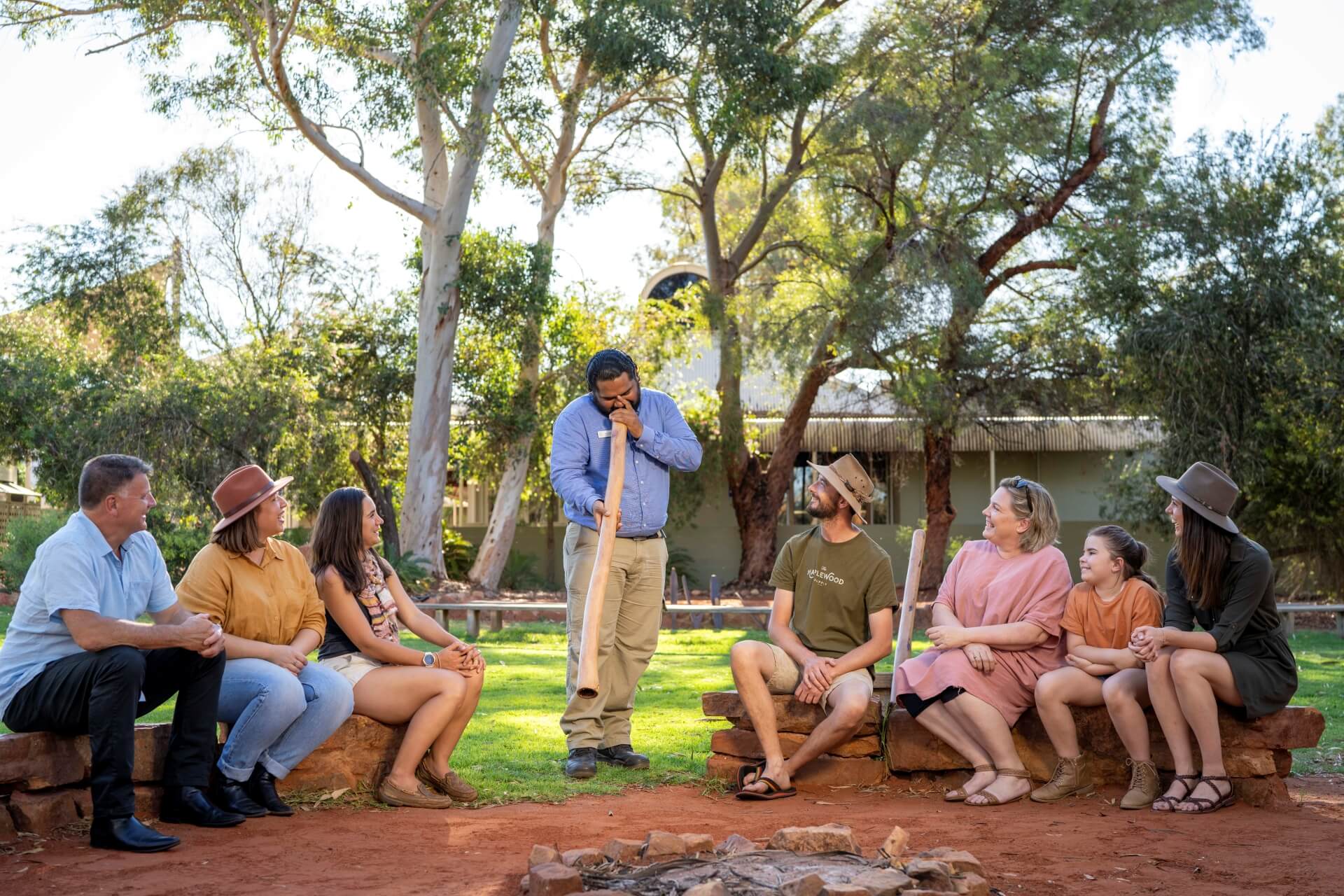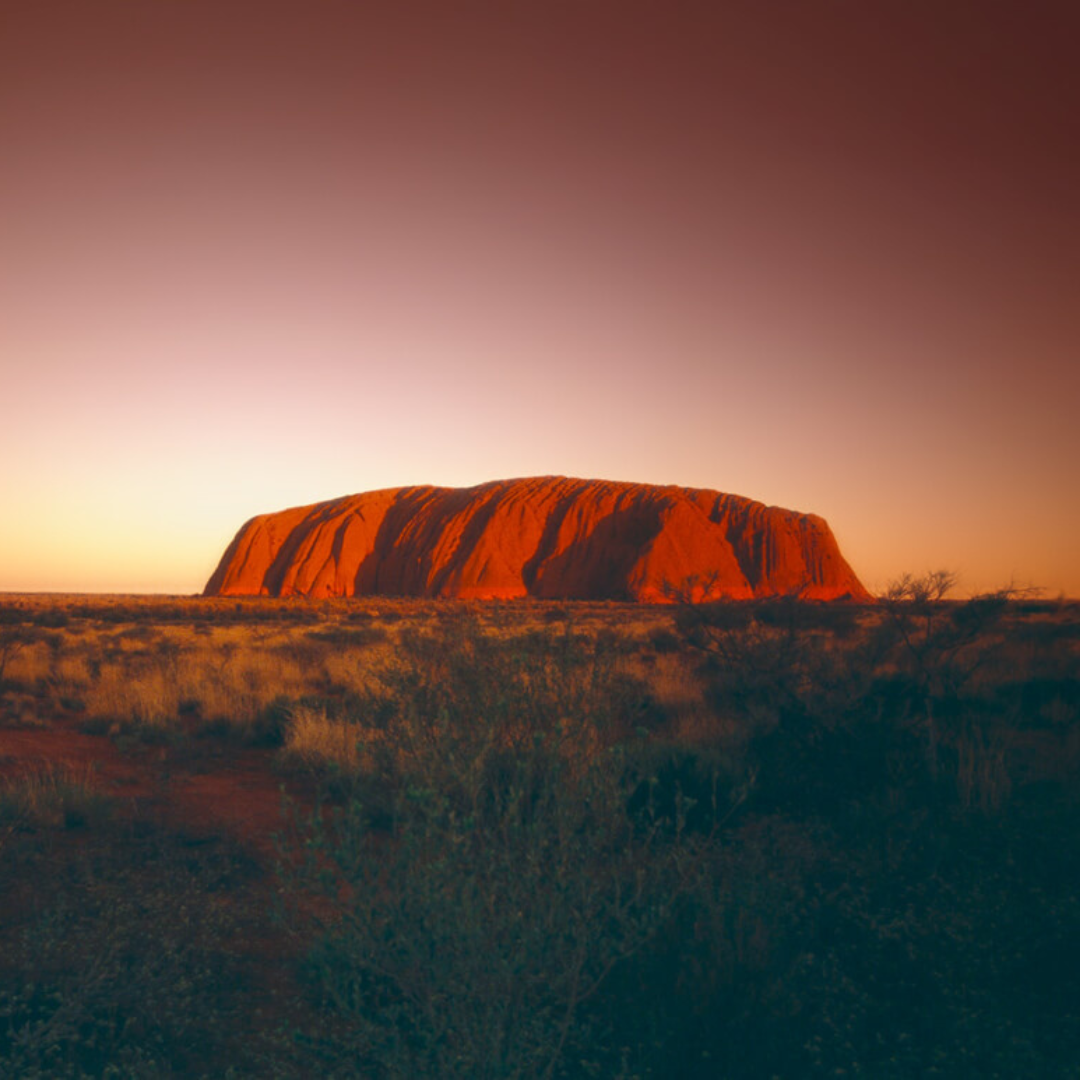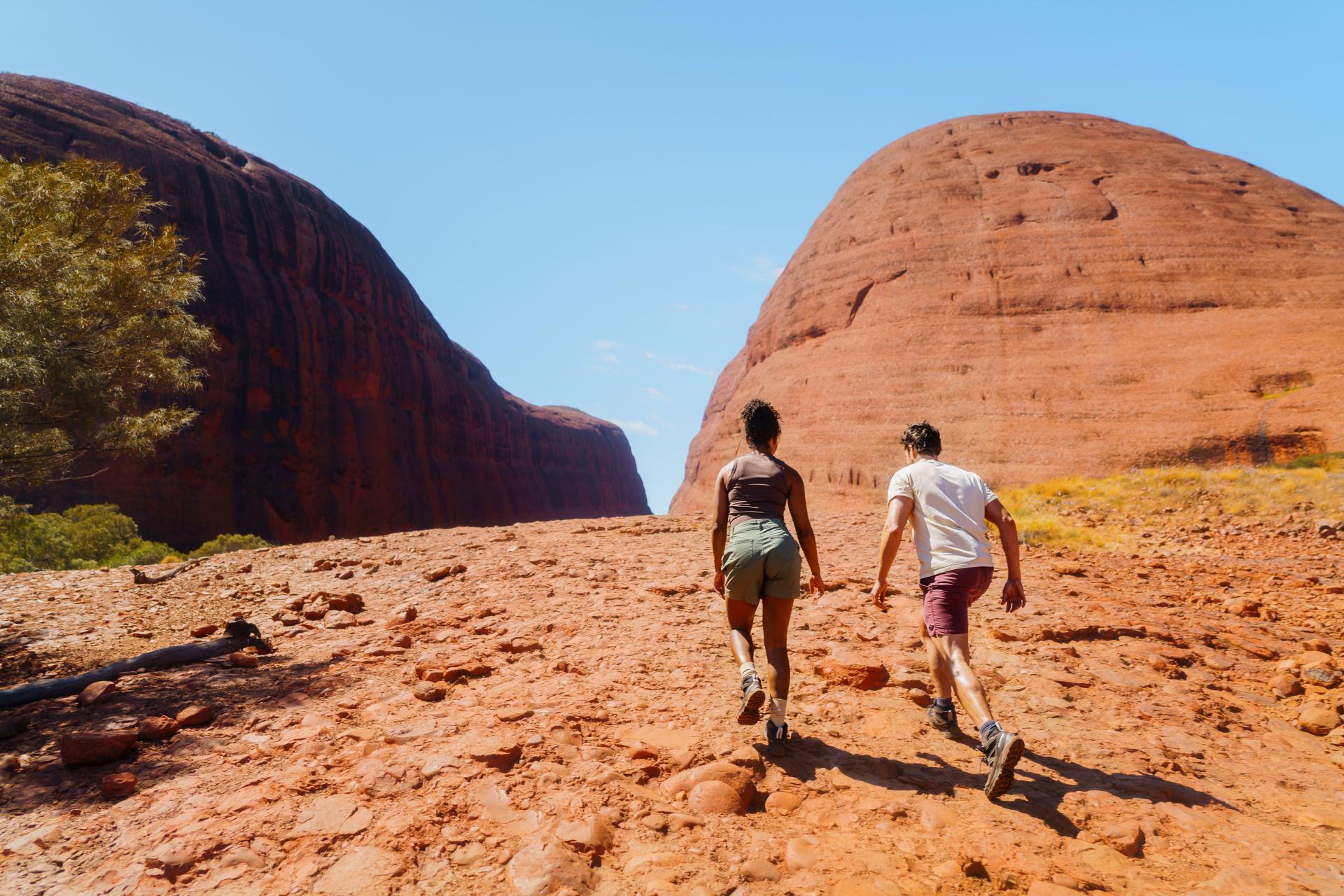Operating a resort in this sensitive environment means that from day one, the local ecosystem has been carefully considered – and ongoing steps have been taken to preserve and protect the land now and for future generations.
One of the most significant investments in greener infrastructure at the Resort is the Tjintu solar field. With so much unobstructed sunshine, the Outback is considered one of the world’s best landscapes for solar energy. In 2016, the installation of Tjintu Solar Field was completed, generating a significant portion of the Resort’s power needs using energy from the desert sun – the equivalent of powering 150 Australian households.
Waste reduction and recycling is another big priority for the Resort. An ongoing program is in place to reduce unnecessary plastics and we’ve recently completed construction of a brand-new drive-through recycling centre that services both Ayers Rock Resort and the town of Mutitjulu, diverting 300 tonnes of waste from landfill each year. Food waste reduction measures are implemented throughout the property along with sourcing sustainable and Australian food products as much as possible.
We are involved in two wildlife monitoring programs, one of which is our annual threatened species monitoring, started by Voyages in 2001 and is an award-winning endeavour that’s been instrumental in preserving species at risk of endangerment and extinction. During the latest annual threatened species monitoring (2022) we found more records of brush-tailed mulgara than in any other year of the 22-year trapping program due to good rainfall, cat control and fire management.
Ayers Rock Resort also supports Mulyamiji March, a national monitoring event focussed on Tjakura (Great Desert Skink). We supported Traditional Owners, Indigenous rangers, and Scientists to find burrows and collect scientific data as part of a new Indigenous-led National Recovery Plan for Tjakura. The initiative is supported by the Australian Government’s partnership with the Indigenous Desert Alliance and will track the population of the Tjakura across central Australia over 10 years. The first monitoring event was in March 2023, where we found 68 burrows across six sites at Ayers Rock Resort.
Throughout the resort and surrounding trails, guests will notice signage reminding them to stay on marked pathways and leave no trace. You won’t find trash bins around the National Park or the walking trails – you’re expected to carry out what you carry in. Staying on marked trails not only prevents guests from inadvertently wandering into sacred spots, but also protects native plants, wildlife, and ecosystems. The result? A stunning, untouched landscape where local flora and fauna can thrive. This respect for the land extends to construction, too – as the Resort has expanded, careful planning has ensured building has not disrupted plant or animal life and minimal stress is caused to the ecosystem.
An ongoing commitment to environmental sustainability has earned Ayers Rock Resort the Advanced Ecotourism and Respecting Our Culture certification. Globally, the Resort is the first ECO Certified business of 2024. Advanced Ecotourism is awarded to Australian ecotourism providers that are leading the way in the field of environmental stewardship, while Respecting Our Culture recognises operators who are committed to protecting and respecting cultural authenticity and integrity.









